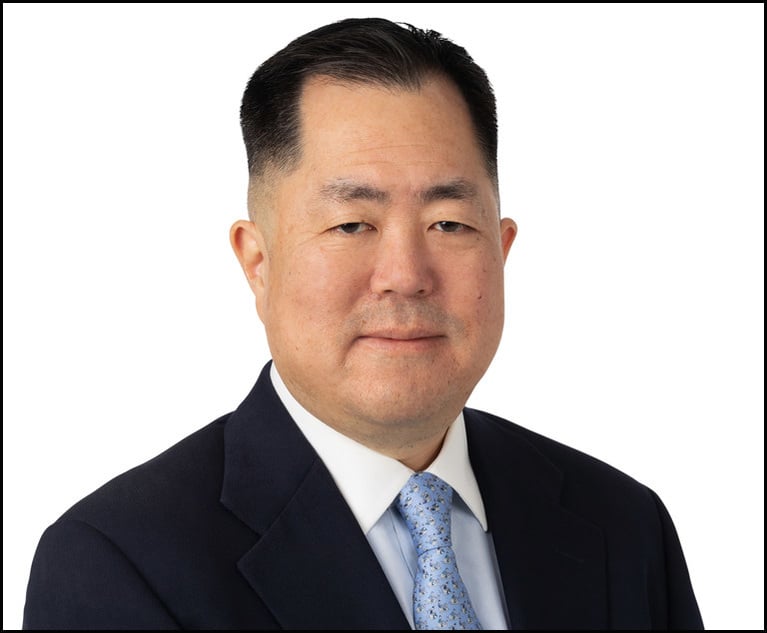New Cannabis Industry Suit Alleges Fraudulent Business Practices
"This is a case involving new and promising areas of business and technology," the lawsuit claims. "It is also a case involving some of the oldest and most unfortunate business practices: making promises knowing that they cannot be kept."
August 14, 2018 at 09:10 PM
4 minute read

Two companies that once sought to partner up and cash in on the booming cannabidiol market are now facing a legal battle over a deal gone bad.
In a suit filed in Ventura County Superior Court, H2 Partners of Moorpark, California, accuses United Cannabis Corp. of making “false promises” about its ability to grow hemp for cannabidiol, or CBD, production. H2 Partners is suing Colorado-based United Cannabis, known as UCANN, and its corporate leaders, Earnest “Earnie” Blackmon and John Walsh, for alleged fraud and breach of contract, as well as other complaints. The complaint demands more than $16 million in damages.
“This is a case involving new and promising areas of business and technology,” the lawsuit claims. “It is also a case involving some of the oldest and most unfortunate business practices: making promises knowing that they cannot be kept, failing to disclose blatant and obvious conflicts of interest, and outright lying to get another business's money.”
Kinsella Weitzman Iser Kump & Aldisert of Santa Monica represents H2 Holdings. Partner Jonathan Steinsapir declined to comment on the suit.
Jesús Vázquez, general counsel to United Cannabis, said the company had not yet been served with the lawsuit and declined to immediately comment.
➤➤ Get the latest cannabis lawyering, compliance and commentary straight to your inbox with Higher Law, a new Law.com briefing. Learn more and sign up here.
Cannabis analytics company New Frontier Data predicted in a report Tuesday that CBD will grow into a $1.2 billion market by 2022 as consumers continue to seek health benefits from the derivative. Hemp was grown on more than 25,500 acres across 19 states in 2017, according to the report. Seventy percent of that crop was grown for CBD.
H2 Holdings' lawsuit contends the two companies agreed in May to grow 600 acres of hemp crops in Colorado for eventual use in CBD products, with each party contributing an initial $650,000 to the venture. The plaintiffs accuse UCANN of misstating how much it had previously spent on preparing for the crop and of how much experience it had growing hemp.
On June 18, a hailstorm hit the hemp-growing fields, which were not covered by crop insurance. A dispute between the two companies ensued over the planting techniques that were used, the quality of seed that United Cannabis had purchased, how much of the crop might be salvageable from the flooded fields and whether the company was candid about the chief grower's experience growing hemp for CBD.
The two companies decided to part ways on July 20, and United Cannabis agreed to repay H2 Holdings' initial investment, according to the complaint. H2 Holdings said United Cannabis argued there was no agreement covering the terms of the dissolution and instead offered to provide “25 [percent] of equivalent industrial hemp seeds.”
The lawsuit acknowledges there were arbitration and venue clauses in the original letter of intent between the two companies but H2 Holdings argues that “by saying that no agreement had ever been reached, UCANN's general counsel effectively repudiated the letter of Intent, and the arbitration and venue clause therein.”
H2 Holdings claims its lost profits total at least $16 million.
United Cannabis separately is the plaintiff in a closely watched patent infringement case targeting Colorado-based Pure Hemp Collective. The company alleges in the U.S. District Court for Colorado that a Pure Hemp-produced tincture infringes on its protected CBD formulation.
This content has been archived. It is available through our partners, LexisNexis® and Bloomberg Law.
To view this content, please continue to their sites.
Not a Lexis Subscriber?
Subscribe Now
Not a Bloomberg Law Subscriber?
Subscribe Now
NOT FOR REPRINT
© 2025 ALM Global, LLC, All Rights Reserved. Request academic re-use from www.copyright.com. All other uses, submit a request to [email protected]. For more information visit Asset & Logo Licensing.
You Might Like
View All
Husch Blackwell Hires Former Adobe Counsel to Oversee AI Advisory Offering
3 minute read
Tyson & Mendes Appoints Cayce Lynch First Female Nationwide Managing Partner

DLA Piper Adds Former Verizon GC Amid In-House Hiring Spree

Pentagon Settles Suit Seeking to Clear Records of Service Members Discharged for Being LGBTQ
3 minute readTrending Stories
- 1The Appropriate Exemption in Students for Fair Admissions v. President & Fellows of Harvard College
- 2DOJ, 10 State AGs File Amended Antitrust Complaint Against RealPage and Big Landlords
- 3New Partners at Cummings & Lockwood, Carmody Torrance Sandak & Hennessey
- 4'Extra Government'?: NY Top Court Eyes Ethics Commission's Constitutionality
- 5South Texas College of Law Houston Selects New Dean
Who Got The Work
Michael G. Bongiorno, Andrew Scott Dulberg and Elizabeth E. Driscoll from Wilmer Cutler Pickering Hale and Dorr have stepped in to represent Symbotic Inc., an A.I.-enabled technology platform that focuses on increasing supply chain efficiency, and other defendants in a pending shareholder derivative lawsuit. The case, filed Oct. 2 in Massachusetts District Court by the Brown Law Firm on behalf of Stephen Austen, accuses certain officers and directors of misleading investors in regard to Symbotic's potential for margin growth by failing to disclose that the company was not equipped to timely deploy its systems or manage expenses through project delays. The case, assigned to U.S. District Judge Nathaniel M. Gorton, is 1:24-cv-12522, Austen v. Cohen et al.
Who Got The Work
Edmund Polubinski and Marie Killmond of Davis Polk & Wardwell have entered appearances for data platform software development company MongoDB and other defendants in a pending shareholder derivative lawsuit. The action, filed Oct. 7 in New York Southern District Court by the Brown Law Firm, accuses the company's directors and/or officers of falsely expressing confidence in the company’s restructuring of its sales incentive plan and downplaying the severity of decreases in its upfront commitments. The case is 1:24-cv-07594, Roy v. Ittycheria et al.
Who Got The Work
Amy O. Bruchs and Kurt F. Ellison of Michael Best & Friedrich have entered appearances for Epic Systems Corp. in a pending employment discrimination lawsuit. The suit was filed Sept. 7 in Wisconsin Western District Court by Levine Eisberner LLC and Siri & Glimstad on behalf of a project manager who claims that he was wrongfully terminated after applying for a religious exemption to the defendant's COVID-19 vaccine mandate. The case, assigned to U.S. Magistrate Judge Anita Marie Boor, is 3:24-cv-00630, Secker, Nathan v. Epic Systems Corporation.
Who Got The Work
David X. Sullivan, Thomas J. Finn and Gregory A. Hall from McCarter & English have entered appearances for Sunrun Installation Services in a pending civil rights lawsuit. The complaint was filed Sept. 4 in Connecticut District Court by attorney Robert M. Berke on behalf of former employee George Edward Steins, who was arrested and charged with employing an unregistered home improvement salesperson. The complaint alleges that had Sunrun informed the Connecticut Department of Consumer Protection that the plaintiff's employment had ended in 2017 and that he no longer held Sunrun's home improvement contractor license, he would not have been hit with charges, which were dismissed in May 2024. The case, assigned to U.S. District Judge Jeffrey A. Meyer, is 3:24-cv-01423, Steins v. Sunrun, Inc. et al.
Who Got The Work
Greenberg Traurig shareholder Joshua L. Raskin has entered an appearance for boohoo.com UK Ltd. in a pending patent infringement lawsuit. The suit, filed Sept. 3 in Texas Eastern District Court by Rozier Hardt McDonough on behalf of Alto Dynamics, asserts five patents related to an online shopping platform. The case, assigned to U.S. District Judge Rodney Gilstrap, is 2:24-cv-00719, Alto Dynamics, LLC v. boohoo.com UK Limited.
Featured Firms
Law Offices of Gary Martin Hays & Associates, P.C.
(470) 294-1674
Law Offices of Mark E. Salomone
(857) 444-6468
Smith & Hassler
(713) 739-1250






